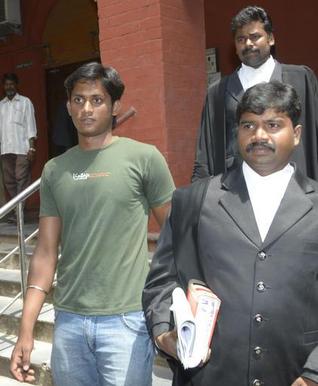 CHENNAI, July 4:The tragic end to the love story of Divya and Ilavarasan has highlighted the hegemony of caste in private relationships in Tamil Nadu, especially if it involves a Dalit.
CHENNAI, July 4:The tragic end to the love story of Divya and Ilavarasan has highlighted the hegemony of caste in private relationships in Tamil Nadu, especially if it involves a Dalit.
Ilavarasan’s marriage caught the attention of the entire state after it was politicised.
At the time of their marriage, Divya was a nursing student, and Ilavarasan was a Tamil Nadu Police Department recruit, waiting for his appointment. She was 21 and he was 18.
But life changed forever for the couple after the death of Divya’s father in November 2012, three months after the young couple got married. Divya’s father Nagaraj committed suicide when she refused to return home.
A series of violent incidents then broke out in Natham colony in Dharmapuri where Ilavarasan lived. On November 7, 2012 Dalit houses were burnt down in mob fury at Natham Colony and two other neighbourhoods. Following the violence the couple went into hiding in Bangalore for some time and returned to Dharmapuri when the situation settled down. Ilavarasan, his parents and Divya, however, stayed at Dharmapuri town, fearing an attack or an attempt to take the girl back to her house in Sellamkottai village. In early June Divya was reported as missing.
Divya’s mother filed a habeas corpus petition in the Madras High Court. However, when Divya was produced before the judges, she said though she wanted to live with her husband, the circumstances were completely against their peaceful life together. She did not complain of harassment by husband or by her mother-in-law but chose to return with her mother to avoid caste tensions.
In a subsequent appearance before the court, she said while she had nothing against Ilavarasan, she believed there was no scope for living with him for now.
On Wednesday, Divya spoke to the media at the Madras High Court campus. She clarified that her earlier remarks should not be construed to mean that she would join her husband at some point of time. She made it clear that she could not live with him and ruled out returning to him.
Demand for inquiry
CPI(M) state secretary G. Ramakrishnan has demanded an inquiry into Ilavarasan’s death, saying that there was every reason to believe that Divya was under pressure to take a decision to leave him. He noted that Tamil Nadu had a history of social justice, but those choosing inter-caste marriages were made to pay a great price.
‘State should have intervened’
A. Kathir of ‘Evidence’, a human rights organisation, said the death of Ilavarasan was a dent on the image of Tamil Nadu that had emerged as a model for others in promoting inter-caste marriages. The sustained campaign of a political party and some caste groups against inter-caste marriages, especially with Dalits, had not only triggered violence in Marakkanam and other places, but also disrupted the life of a happily married couple.
The State Government should have intervened in the case and provided suitable counselling to Divya and Ilavarasan. A section of the media forced the girl to come out with a statement that she would never reunite with her husband again. “It was a marriage by mutual consent. The girl was not kidnapped or forced to live with the youth. The death of Ilavarasan only proves his love for the girl and commitment to the marriage,” Mr. Kathir said.
